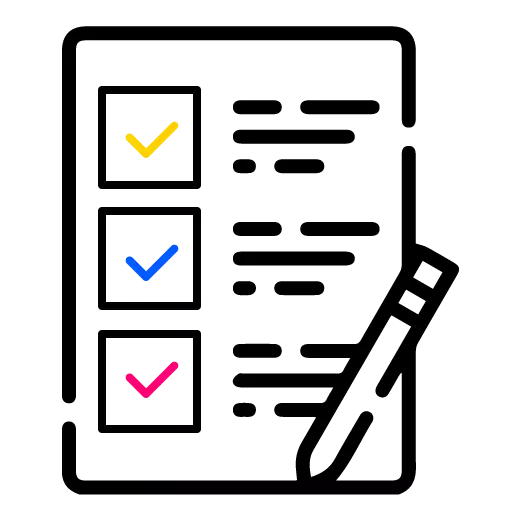Industry Knowledge
5 Key Advantages and Components of HIPAA Compliance-as-a-Service
Address HIPAA compliance challenges in the digital age with Compliance-as-a-Service
Complying with the Health Insurance Portability and Accountability Act (HIPAA) is non-negotiable for healthcare providers to protect sensitive patient health information. However, securing and maintaining compliance is an intricate process that is becoming even more complex due to new technologies.
System breaches, unauthorized data access, inadequate protection of patient data, and non-compliance could carry dire implications, including severe penalties and a damaged business reputation. Penalties can cause organizations up to $50,000 per violation, criminal charges, or imprisonment of up to 10 years for misuse of patients' private health information. These violations could further lead to negative public relations, loss of patient trust, and potential business decline.
HIPAA Compliance-as-a-Service is a beneficial resource for healthcare organizations navigating this complex landscape. This article will delve into its significance, benefits, components, and how it can alleviate the burden of being HIPAA-compliant.
What is HIPAA?
Established in 1996, HIPAA mandates that companies handling electronic protected health information (e-PHI) must implement physical, network, and procedural security measures. PHI refers to any health information that identifies an individual and is held or transmitted by a covered entity (e.g., medical practitioner, health insurance provider, or healthcare clearinghouse) or business associate (e.g., billing company, electronic health record (EHR) vendor, consultant, or auditor).
E-PHIs are vulnerable to fraud attempts and data breaches, exposing the healthcare sector to cyber threats and financial waste. In fact, healthcare fraud costs the US government and insurance companies at least $100 billion annually and poses a risk to patient safety and trust.
In 2021, a homecare provider was sued following a ransomware attack that exposed the personal details of over 200,000 patients. The attackers gained access to electronic health records, including sensitive information like patients' names and Social Security numbers. As a result, the company was required to pay affected individuals for any costs incurred due to the data breach, with a maximum of $4,000 per person.
To combat fraud incidents, the U.S. Department of Health and Human Services (HHS) regularly updates HIPAA rules. One of the most recent changes has been to strengthen people’s right to access their medical records upon request. Moreover organizations that handle PHI must continuously review their security protocols in accordance with HIPAA guidelines. This is where HIPAA Compliance-as-a-Service becomes useful.
What is HIPAA Compliance-as-a-Service?
A HIPAA compliance service uses third-party, cloud-based solutions to unburden organizations from the complex and labor-intensive task of maintaining continuous HIPAA compliance.
HIPAA compliance services start by assessing an organization's current compliance status. This procedure includes extensive examinations of the organization's existing practices, policies, and protocols. By conducting a thorough risk analysis, HIPAA compliance service providers can pinpoint any potential areas of non-compliance, such as insufficient staff training or lax data encryption measures.
After identifying these gaps, the necessary measures are set in motion to rectify existing problems and bolster the organization's adherence to HIPAA regulations. This process may involve modifying policies, amplifying security systems, or launching comprehensive staff education programs.
Constant monitoring of evolving security threats and HIPAA regulatory changes is an indispensable component of HIPAA compliance solutions. This ensures that your organization is always informed and compliant with HIPAA regulations. It allows healthcare organizations to focus on providing exceptional patient care without worrying about compliance.
Key Advantages of HIPAA Compliance-as-a-Service
Adopting HIPAA compliance services offers crucial benefits to healthcare organizations:

1. Cost Efficiency
Launching an in-house team dedicated to HIPAA compliance and investments in necessary hardware and software can weigh down many organizations with undue financial burdens. Working with HIPAA compliance service providers eliminates these significant expenditures, providing access to expert resources and cutting-edge technology at a fraction of the in-house price.

2. Efficiency and Productivity Boost
HIPAA compliance is a demanding process that can consume considerable time and resources. By delegating this weighty task to a healthcare BPO, organizations can free up their internal resources, enabling them to focus on their primary mission – delivering high-quality patient care.

3. Enhanced Security and Data Protection
Securing patient data is a prime priority. HIPAA compliance service providers are cybersecurity experts, utilizing advanced technologies and risk management services to ensure unparalleled data protection.

4. Expertise and Resource Access
HIPAA compliance service provides organizations access to experts equipped to navigate the complexities of HIPAA regulations. HIPAA compliance service providers have the resources, such as staff training materials and strategies to enhance compliance protocols.

5. Scalability
As organizations grow, their compliance needs may also evolve. Compliance-as-a-Service seamlessly scales up or down accordingly, ensuring organizations only pay for services they need when required.
Components of HIPAA Compliance Services
Understanding the components of compliance as a service is crucial. They work as a holistic solution, covering all aspects of HIPAA compliance, with each domain being fundamental for an effective program.

1. Comprehensive Risk Assessment and Analysis
HIPAA compliance service providers scrutinize existing practices, policies, and protocols and identify potential areas of noncompliance or vulnerability. This provides a comprehensive insight into how well the organization is aligned with HIPAA regulations and highlights the areas that require urgent remediation or gradual improvements. It serves as a basis for developing and applying subsequent compliance strategies.

2. Policy and Procedure Evaluation and Implementation
Current policies and procedures are then evaluated against HIPAA's legal and regulatory obligations. Compliance-as-a-service offers guidance and assistance in reforming and fortifying these instruments to enhance HIPAA adherence. Clear and efficient policies could include protective mechanisms for electronic health records, emergency modes of operation, and more.

3. Employee Training and Education
Employee participation is crucial to HIPAA compliance. HIPAA compliance service providers offer in-depth training programs to align employees with the compliance environment. Training encompasses a range of topics, such as understanding what qualifies as Protected Health Information (PHI) and the importance of safeguarding it, recognizing potential threats to patient data, and learning to respond effectively to potential data breaches.

4. Continuous Monitoring and Maintenance
Compliance must be an ongoing initiative. Compliance-as-a-service ensures consistent surveillance of organizations' conformity status, conducting regular audits to keep policies up-to-date. HIPAA compliance solutions include tracking HIPAA updates and adapting policies to accommodate these changes. Maintenance also includes monitoring for cybersecurity threats that could jeopardize patient data.

5. Incident Management and Support
Compliance-as-a-Service swiftly rolls out an incident management protocol to handle breaches. It includes identifying and categorizing the breach, conducting investigations, notifying affected parties, reporting to regulatory bodies, and preventing future incidents. This level of support ensures that the organization can quickly recover from an incident while mitigating the associated risks and damages.
Choosing the Right HIPAA Compliance Solutions Provider
There are several factors to consider when choosing a HIPAA Compliance-as-a-Service provider. One of the primary factors to evaluate is the provider's reputation. Client reviews and testimonials can show the provider's success rate and reliability.
Second, consider the level of expertise the provider brings to the table. Coming to grips with HIPAA's intricacies demands an in-depth understanding of the regulations and a unique combination of technological acumen, legal know-how, and industry-specific knowledge. HIPAA compliance service providers staffed with dedicated teams skilled in these areas are more capable of delivering a comprehensive and effective service.
Providers must also be capable of delivering end-to-end solutions, from initial risk assessments and crafting custom compliance policies to providing ongoing management and more. Top-notch providers have agile and proactive approaches to changing regulations or security threat landscapes.
Lastly, look into the level of customer service and support HIPAA compliance service providers offer. A provider that fulfills its core HIPAA Compliance-as-a-Service and provides timely and responsive customer support, including advice on compliance issues and rapid response to a potential data breach, would be a valuable assistant to your compliance journey.
Ensuring HIPAA Compliance in the Cloud
Transitioning healthcare operations to the cloud brings unique HIPAA compliance challenges, particularly around data visibility and control. Organizations must manage and control access to PHI effectively while ensuring the physical security of the data centers where information is stored.
HIPAA Compliance-as-a-Service providers, well-versed in these challenges, offer tools that grant organizations an overview of their data's storage, processing, and transit. They set rules on who can access PHI, log all access for later audits, and promote compliance with regulations. In addition, service providers strongly emphasize data encryption at rest (stored data) and in transit (data being shared over a network), providing an additional layer of protection.
Furthermore, providers ensure cloud service adheres to HIPAA's physical security requirements, including secured data center access, video surveillance, and emergency measures. They also leverage cloud services' data backup and disaster recovery potential to help organizations meet HIPAA's demands.
The Future of HIPAA Compliance-as-a-Service
As the technological landscape continues evolving, so do HIPAA Compliance-as-a-Service's relevance and importance. Emerging technologies such as AI and IoT are rapidly entering the healthcare domain, adding further complexity as compliance regulations adapt to these developments.
HIPAA compliance service providers are ahead of these trends, proactively integrating any necessary changes into compliance strategies they have outlined for their clients and saving organizations the arduous task of continuously re-evaluating their compliance status.
Furthermore, as patient care becomes more personalized and digital, the data generated increases exponentially. This implies that compliance will become a high-stakes game, requiring even more stringent measures and utmost diligence.
By partnering with a trusted provider, organizations can reduce costs, increase efficiency, elevate patient experience, improve security and data protection, and remain compliant in protecting sensitive patient information.
Ensure Compliance with Us
With a track record as a leading outsourcing provider for high-growth companies, TaskUs stands out as an ideal partner for HIPAA Compliance-as-a-Service.
Backed by our expertise and an innovative approach, TaskUs is fully equipped to navigate the complexities of HIPAA regulations. We have a team of fully trained and certified professionals backed by state-of-the-art technologies and Generative AI, providing you with the highest level of data security and effectively mitigating the risk of security breaches and data leaks.
TaskUs doesn’t just ensure the safety of patient data; we empower organizations to strengthen their operations, bolster their reputation, and deliver high-quality, compliant healthcare services.
- 1^What are the Penalties for HIPAA Violations?
- 2^Covid-19 Relief Fraud Potentially Totals $100 Billion, Secret Service Says
References
We exist to empower people to deliver Ridiculously Good innovation to the world’s best companies.
Useful Links










